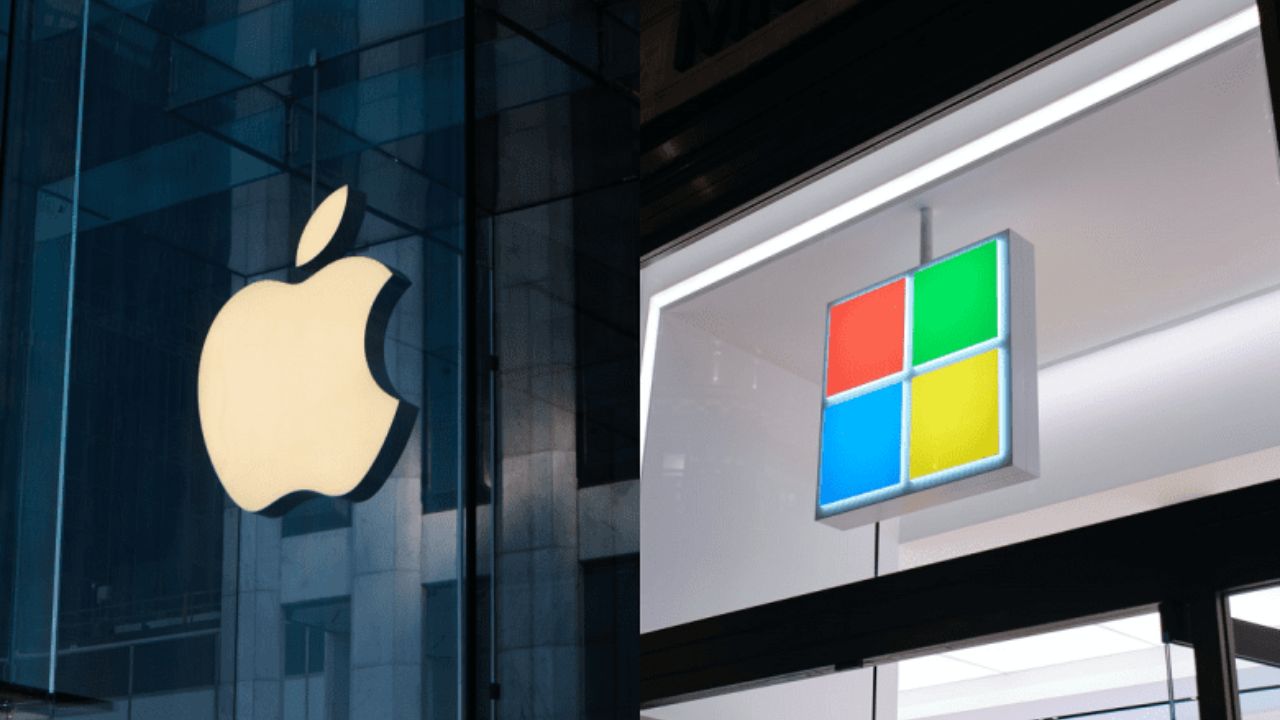In a dramatic turn of events, Microsoft (MSFT) briefly claimed the title of the world’s most valuable publicly traded company on Thursday, overtaking Apple (AAPL) in market capitalization. The software giant reached a staggering valuation exceeding $2.8 trillion, momentarily surpassing its tech rival. However, this lead was short-lived as the two industry giants continued to trade places throughout the morning.
The temporary shift in market cap coincided with a challenging period for Apple, whose shares have struggled in the first two weeks of the year. Analysts from three major banks downgraded Apple’s stock, expressing concerns about slowing iPhone demand. Redburn Atlantic analyst James Cordwell and Barclays’s Tim Long highlighted limited upside for Apple’s stock in the coming years, with an anticipated underwhelming March quarter potentially impacting investor confidence.
Furthermore, Piper Sandler’s Harsh Kumar downgraded Apple’s stock to Neutral. Analysts voiced apprehensions about the performance of the Apple iPhone 15 in China, facing competition from homegrown rival Huawei and grappling with the broader economic slowdown in the country. Greater China represents Apple’s third-largest revenue driver, accounting for $72.6 billion of the company’s $383.3 billion total revenue in 2023.
Despite these downgrades, Wall Street analysts maintain an overwhelmingly positive outlook on Apple, with 32 of the 53 analysts tracking the stock maintaining Buy ratings. Another 16 analysts have Hold ratings, while only five have Sell ratings.
Meanwhile, Apple is gearing up to launch its highly anticipated Vision Pro AR/VR headset, which goes on sale on February 2 for $3,499. The starting price is expected to be a significant barrier for most consumers, but if successful, it could be a game-changer for Apple in the long run.
In contrast, Microsoft focuses on ensuring the success of its massive investments in OpenAI, the maker of ChatGPT, and its generative AI offerings. The company’s fiscal Q1 earnings report indicated that its AI tools provided a better-than-expected boost to its cloud business. Microsoft’s Intelligent Cloud segment, including its Azure business, exceeded Wall Street’s expectations, bringing in $24.3 billion in the quarter.
Microsoft’s optimism extends to the consumer market, with the launch of a new Copilot key for Windows laptops and desktop keyboards. This move, marking the first significant update to Windows keyboards in nearly 30 years, showcases the company’s commitment to AI advancements.
While both Microsoft and Apple face challenges in their respective markets, Microsoft’s strategic investments in AI and cloud computing appear to be paying off, positioning the company for continued success in the evolving tech landscape. The market cap battle between these two tech giants will be closely watched as they navigate the complexities of global competition and changing consumer demands.

